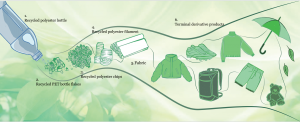Sustainable clothing is important for several compelling reasons, encompassing environmental, social, and economic aspects:
Environmental Impact
Reduction of Pollution:
Traditional textile production involves significant chemical use, leading to water and soil pollution. Sustainable clothing practices reduce or eliminate these harmful chemicals, protecting ecosystems and water sources.
Conservation of Resources:
Sustainable clothing often uses organic or recycled materials, which require less water, energy, and raw materials. This helps conserve vital resources and reduces the environmental footprint of clothing production.
Reduction of Waste:
Fast fashion contributes to a large amount of textile waste as consumers frequently discard low-quality, trendy items. Sustainable clothing emphasizes quality and durability, reducing the amount of waste generated and promoting a circular economy through recycling and upcycling.
Social Impact
Fair Labor Practices:
Many sustainable clothing brands are committed to ethical labor practices, ensuring fair wages and safe working conditions for workers. This contrasts with some fast fashion brands that often exploit labor.
Economic Impact
Saving consumers money in the long run:
Sustainable clothing tends to be of higher quality and more durable, which means consumers can save a lot of money on clothing by not having to change items frequently.
Market Growth and Innovation:
The rise in demand for sustainable clothing fosters innovation in materials and production methods, driving the industry towards more sustainable practices overall.
Health Benefits
Reduced Exposure to Toxins:
Sustainable clothing made from organic and natural fibers often contains fewer chemicals, reducing the risk of skin irritations and health issues for consumers.
Ethical and Moral Considerations
Animal Welfare:
Many sustainable clothing brands avoid using animal products or ensure that any animal-derived materials are sourced ethically, addressing concerns about animal cruelty in the fashion industry.
Corporate Responsibility:
Consumers increasingly expect companies to act responsibly and sustainably. Supporting sustainable clothing brands aligns with broader ethical consumption trends and encourages more companies to adopt sustainable practices.
Global Climate Change
Reduction of Carbon Footprint:
Sustainable clothing practices often aim to minimize carbon emissions through efficient production methods, renewable energy use, and sustainable sourcing. This helps combat climate change by reducing the overall carbon footprint of the fashion industry.
In short, sustainable clothing is crucial because it can solve major environmental problems. SYS GROUP promotes fair labor practices, encourages sustainable economic development, and supports ethical consumption. SYS GROUP has a recycled polyester green resource factory, which produces recycled polyester filament using PET bottles as raw materials, and has established a complete recycling industry chain of “bottle-bottle flakes-chips-yarn”. It has an industrial scale of annual comprehensive utilization of 200,000 tons of waste plastic bottles and annual production of 150,000 tons of recycled polyester filament. By making sustainable clothing, SYS GROUP can contribute to a more sustainable and fair world.




